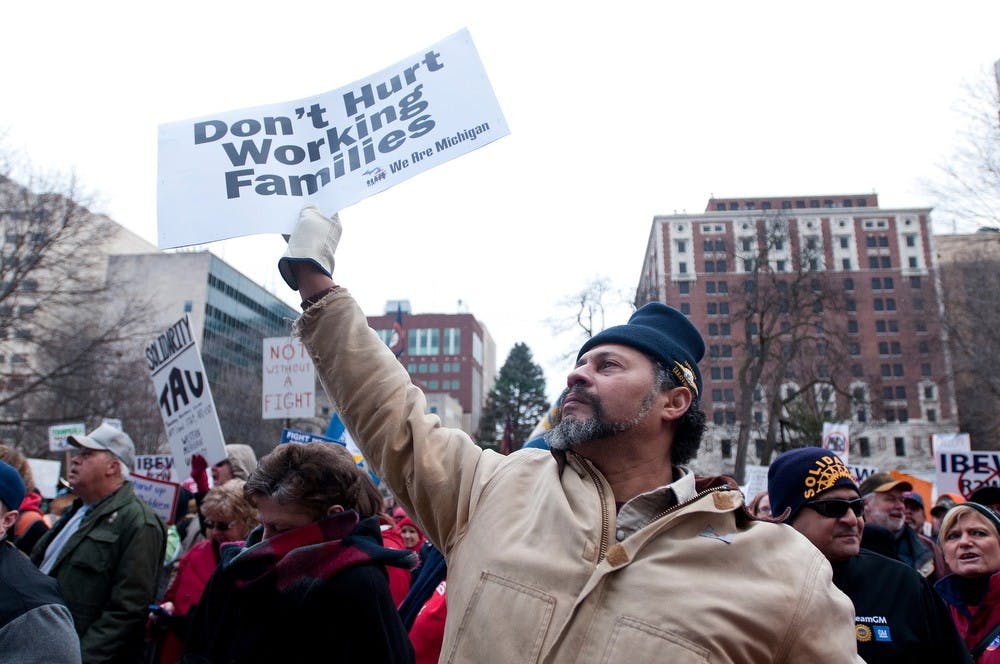After opponents of right-to-work legislation threatened to file lawsuits against the new law, Gov. Rick Snyder enlisted the help of the Michigan Supreme Court to determine if certain parts of the bill are unconstitutional.
The governor asked the state’s highest court to issue an opinion on sections of the law that protesters could challenge before the law takes effect March 27, according to Snyder’s official letter to Michigan Supreme Court Chief Justice Robert Young Jr.
Many state workers are upset the Michigan Legislature quickly pushed a controversial right-to-work bill through Congress on Dec. 11, 2012, during the lame duck session.
The law states employees in unionized workplaces can opt out of joining a union, whereas before, they were not given a choice.
Pro-union workers opposed the legislation, fearing it might weaken unions’ collective power when bargaining with employers for better wages or more benefits.
Right-to-work opposers find it unfair non-union members don’t have to pay union dues, but will receive the same benefits unions work for.
Snyder wrote in the letter that the Michigan Civil Service Commission, a governor-appointed, bipartisan commission that regulates all conditions of employment in the classified service, challenged the bill’s constitutionality when applied to classified state civil service.
He cited a section of the commission’s newsletter about its opposition to right-to-work legislation.
The section stated, “one can rest assured the matter will be fought out in the courts.”
MSU philosophy professor Leonard Fleck, who has spent time as an ethical consultant drafting congressional proposals on health care policy, said Snyder’s attempt to skip bringing the case to the trial court level and heading straight to the Michigan Supreme Court could have been a political move since the court is a majority of Republicans, the party supporting right-to-work legislation.
“(Snyder) may be expecting to get the decisions he wants there and avoid what you might call ‘unsavory’ publicity they might be faced with at the lower court level,” Fleck said.
Snyder said his questions are time-sensitive because contract negotiations between employers and workers under the new right-to-work law likely will begin as early as this summer.
Dan Clark, president of MSU’s Graduate Employees Union, said the right-to-work law won’t affect graduate students on campus until 2015, when their current contracts expire.
“Our financial resources will be hit a little bit, but (our members) value the things that we do for them, and we’ll still be around to represent them,” Clark said.
Support student media!
Please consider donating to The State News and help fund the future of journalism.
Discussion
Share and discuss “Snyder asks for court review of right-to-work” on social media.



